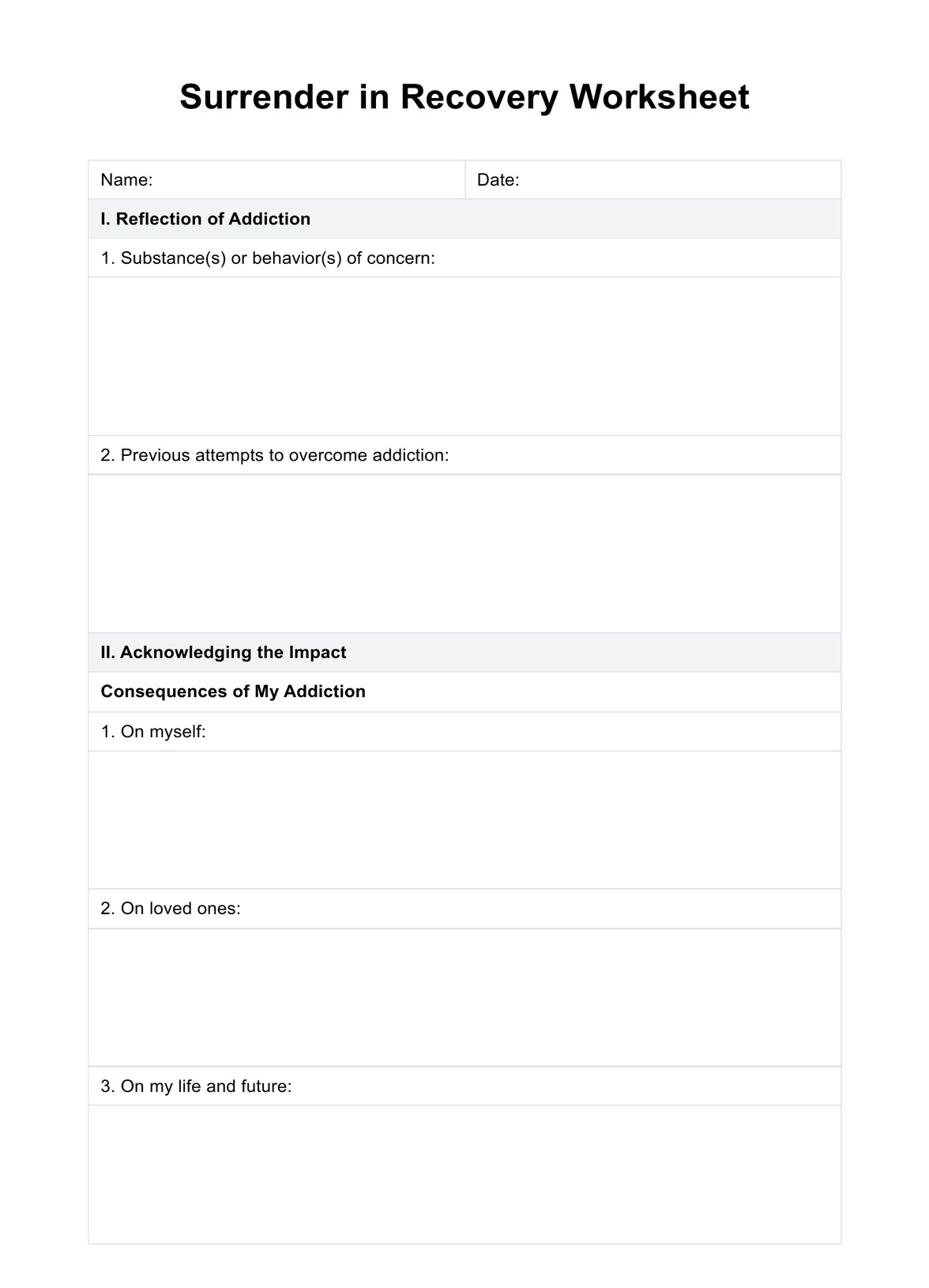Surrendering is a key step in the recovery process, as it involves accepting help and acknowledging that recovery cannot be achieved through willpower alone.

Surrender in Recovery Worksheet
Discover a path to recovery with our Surrender in Recovery Worksheet. Embrace change and healing with guided self-reflection. Download the free template.
Use Template
Surrender in Recovery Worksheet Template
Commonly asked questions
Surrendering changes your perspective, allowing you to be open to the recovery process, learn new coping mechanisms and habits, and ultimately lead a healthier, sober life.
On the contrary, surrendering requires courage and honesty. It is a powerful act of self-care and the first step towards recovering and regaining control over your life.
EHR and practice management software
Get started for free
*No credit card required
Free
$0/usd
Unlimited clients
Telehealth
1GB of storage
Client portal text
Automated billing and online payments











